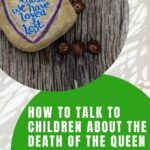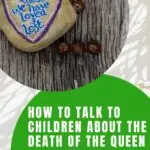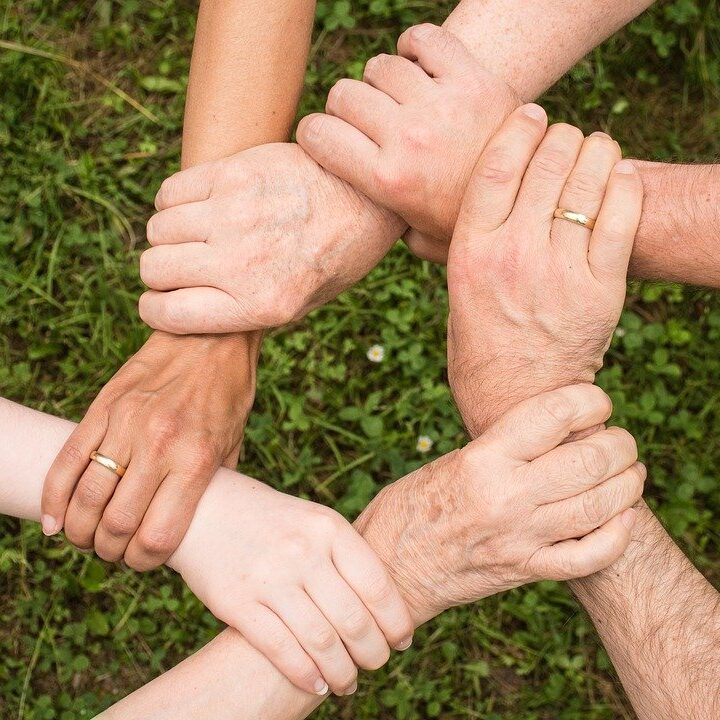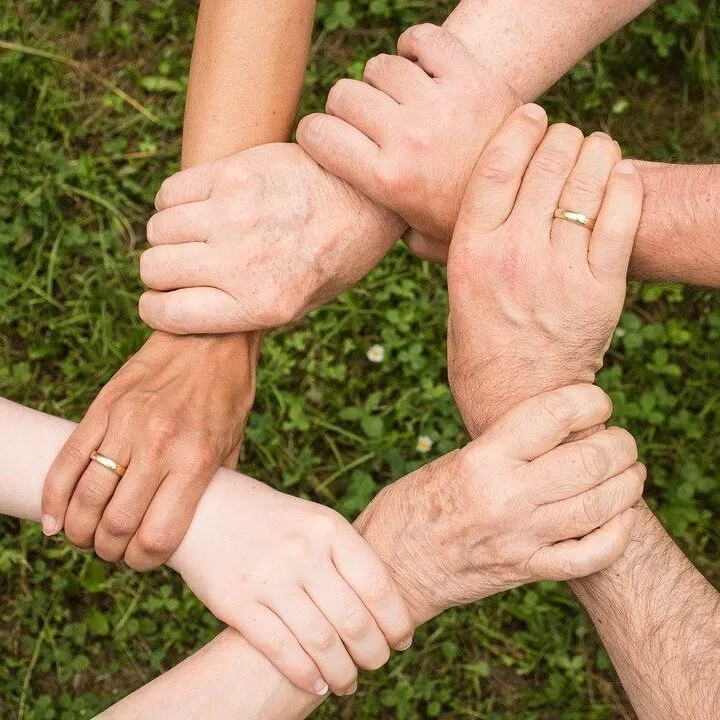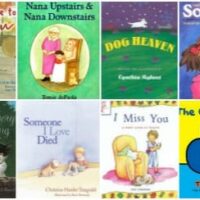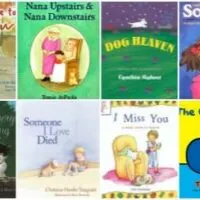We are a nation in mourning in the U.K., but given we are all having to deal with such strange times for the first time, it seems appropriate to think about how to talk to children about the death of The Queen in a way that is age appropriate and helps them to process some difficult and big feelings. We have produced memories of the Queen worksheets to help children to create their own memory eBooks, but is there anything else we can do to help them with their emotions?
With this question in mind, we have turned to Winston’s Wish, and our own experiences as a counsellor, to create this advice piece for parents and schools. Winston’s Wish are a wonderful bereavement charity in the U.K. The charity has been supporting bereaved children since 1992 and can be contacted through their website. They also have a dedicated helpline (08088 020 021) which is open 8am until 8pm Monday to Friday which supports children through difficult times and their grief. We have been lucky enough to work with the charity before when creating a comprehensive guide for helping kids with grief that includes a helpful checklist.


The charity have put together some advice and tips for children specifically about the death of The Queen, both to help them to understand what is happening, but most importantly to encourage them to talk about their feelings. Just like we all are on social media, and with our friends:
Note: this is NOT sponsored content, we just love Winston’s Wish
We have added to it with our own experiences in counselling, so we hope you find the ideas helpful:
1. Speak with their language; simply and honesty
Children, whatever their age, need death to be explained in ways that they understand, and for adults to be straight with them. It doesn’t help them to be told that someone has gone to sleep as this can just be confusing for them. The best way to approach the topic is to keep it simple, truthful and straightforward. We might worry that using words such as death, dead, or died are very blunt, but actually it makes it much clearer for children to have death referred to like this, rather than us skirted around the topic.
Keep it simple, and to the point and it helps enormously.


2. Explain what death is
This is a high profile death for the whole nation, and it might be your child’s first experience of someone dying that they knew. If this is the case, then you may need to explain what death is to them. We need to keep our explanations simple and to the point, so that children are clear about what has happened, and that person isn’t coming back. Winston’s Wish suggest talking about “when someone dies, their body has stopped working, and they can’t be brought back to life.” The charity even mentions discussing what they cannot do anymore, such as move or talk, and that their heart has stopped beating and they aren’t breathing anymore either.
This may seem blunt, but it is better for our children to be honest with them, rather than trying to make it better with euphemisms that are actually more likely to confuse them. Poems might help you around loss, such as this one about loss on butterflies, but it can be better to straight talk with our kids.
It can help to use insects to explain death, and Winston’s Wish have a great activity sheet to help with this.


3. Give reassurance honestly
When someone famous dies, it can mean that children start to think about those close to them, and this might make them worry that their friends and family might also die, particularly if their grandparents, or close friends are ill.
Given that children will be hearing regularly about the Queen’s death, it might be that they need reassurance about those around them. it is wise to do this honestly, and clearly too. Try not to make promises that aren’t possible to keep, or know about. For example, we can say we are doing all we can to stay healthy because we want to spend as much time with our families as possible, and are looking forward to all the fun things we can do.
Winston’s Wish suggest that for those that are seriously ill, we explain that doctor’s are doing all they can to help them, and to explain what illness is affecting that family member too:
“You know Dad is very ill at the moment and has an illness called cancer. The doctors are giving Dad special medicine and working very hard to make him better.”
Winston’s Wish blog


4. Talk with complete honesty
Kids see through us. So let’s be honest with them, so they don’t have to!
It’s that easy. Our children are incredibly perceptive when they talk to us, and they have probably learnt more about talking and sharing their feelings at school more than we ever did when we were younger. Let’s give them what they deserve – our honesty about how we are feeling too.
For example, we’ve been totally honest to our teenagers about how we are feeling about the Queen’s death, explaining:
“Mum is sad about the Queen dying because she was an amazing women who was a steadfast in all our lives. It also reminds me a bit of my own Dad dying which brings a tear to my eye too.“


5. Listen to their questions closely and answer truthfully
We should try and practise active listening with our children anyway, but never more so than at a time when there is change in their lives, and those around them. The death of the Queen is bound to bring questions and uncertainty to them, so let’s be honest in what we tell them about both our emotions, and what’s going on in the world around us.
If your children ask you something, and you don’t know the answer. It is 100% OK to say you don’t know, but will find out.
If you do say this though, make sure you DO find out and come back to your kids, so that they continue to trust what you tell them. Reliability is important for our kids.


6. Help them to understand their emotions and normal
Your children might feel anything from sadness, to anger, worry, confusion, guilt, and loads of other feelings too. Everything is valid, so just let them know that whatever they are feeling, grief is personal and there isn’t anything right or wrong in the way they are dealing with their feelings about the death of the Queen.
One thing it is worth making sure we don’t do is diminishing their feelings just because they didn’t meet the Queen. If they feel sad, or anything else, that’s OK.


7. How might our kids behave?
Winston’s Wish tell us that younger children jump around with their feelings, like jumping in and out of puddles. One moment they are talking about being sad, and the next they are trying to work out what to play next, or annoying the dog.
Let them just roll with it!


It’s perfectly OK for them to deal with grief in whatever way they see fit, as well as helping them to explore their feelings, and see you dealing with your grief too. Children do look to adults to understand how to manage their grief, so be honest in your feelings with them to help them learn how to cope with bigger feelings in their life.
We hope that this helps you a little in talking about the death of the Queen with kids both at home and in the classroom.
We do have other articles on bereavement that you might want to take a look at too, as well as the memory book for the Queen:
Posts about bereavement and loss
Here are some other posts on KiddyCharts about loss and bereavement that also might be helpful for you.
Winston's Wish: Comprehensive guide on how to help kids with grief (includes checklist)
A guide on grief from the amazing charity Winston's Wish.
How to help your kids cope with loss
12 tips on how to help children with loss.
Butterflies in the breeze: A poem about loss
A poem about loss that I wrote after the death of my own Father in 2020.
Here are some other posts off site too:
Other posts on bereavement
Here are more posts covering bereavement from other sites outside KiddyCharts.
How To Prepare Your Children For Loss
This is a really original article; helping your children prepare for loss, so that when it does happen, they are better able to cope with it.
The Memory Tree by Britta Teckentrup
A book to help kids to cope with grief from Britta Teckentrup; worth a look to add additional resources if you need them.
Helpful Children's Picture Books About Grief and Death
Some picture books that help children understand and process grief.
We hope that you find this article helpful, if you do, why not sign up to our weekly newsletter?
Thanks as always for stopping by.
Helen



